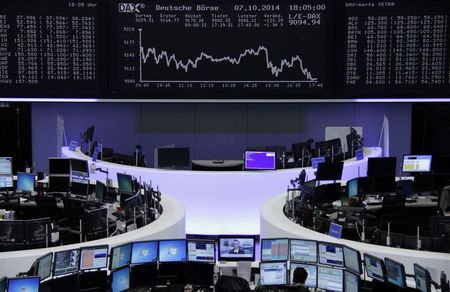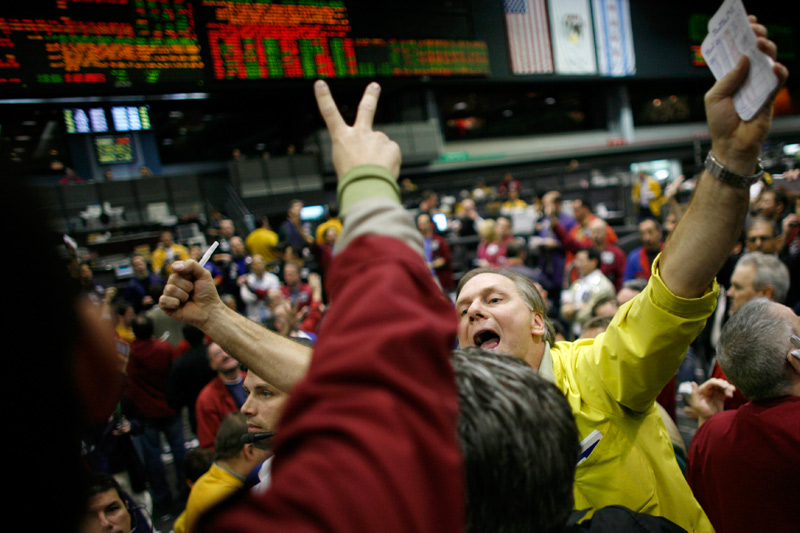By Alistair Smout EDINBURGH (Reuters) - European stocks fell on Wednesday, hitting fresh 1 1/2-month lows as investors moved out of shares around the world in the face of a spate of discouraging signals about the global economy.
The pan-European FTSEurofirst 300 (FTEU3) index of blue-chip shares was down 0.4 percent at 1,324.71 at 0811 GMT, touching its lowest levels since mid-August.
Asian and U.S. shares fell overnight after the IMF cut global growth forecasts and German industrial production missed expectations.
In the latest evidence of economic malaise, growth in China's services sector weakened slightly in September as new business cooled, a private survey showed on Wednesday. This reinforced signs of a slowdown in the world's second-largest economy that could prompt more stimulus measures.
"It's concerns over global growth that are weighing on the equity markets," James Butterfill, global equity strategist at Coutts, said.
"If you look at Europe, there's very weak macroeconomic data, there's weak data coming out of China as well, so it does suggest weaker growth, and markets are perhaps adjusting to that.
Cyclical stocks, sensitive to economic optimism, bore the brunt of the selling. The top sectoral faller was travel and leisure , down 1.7 percent.
Airlines led the sector lower, having come under pressure from the spread of the Ebola virus to Europe, with Air France-KLM (PA:AIRF) down 4.7 percent after it said a pilot strike had wiped more than a fifth off its estimated full-year core profit.
Germany's DAX (GDAXI) was down 0.6 percent, continuing its underperformance from Tuesday after weak industrial data raised fears over the health of the euro zone's biggest economy.
It fell 53.90 points to 9,032.31 points, close to the psychologically and technically important 9,000 level, analysts said.
The index has not closed below 9,000 this year, had has bounced off its lows both times it has drifted below the level in 2014.

"If the benchmark fell below this support, another negative signal would be generated," Roger Peeters, head of research at Close Brothers Seydler, said in a note.
(Editing by Toby Chopra)
